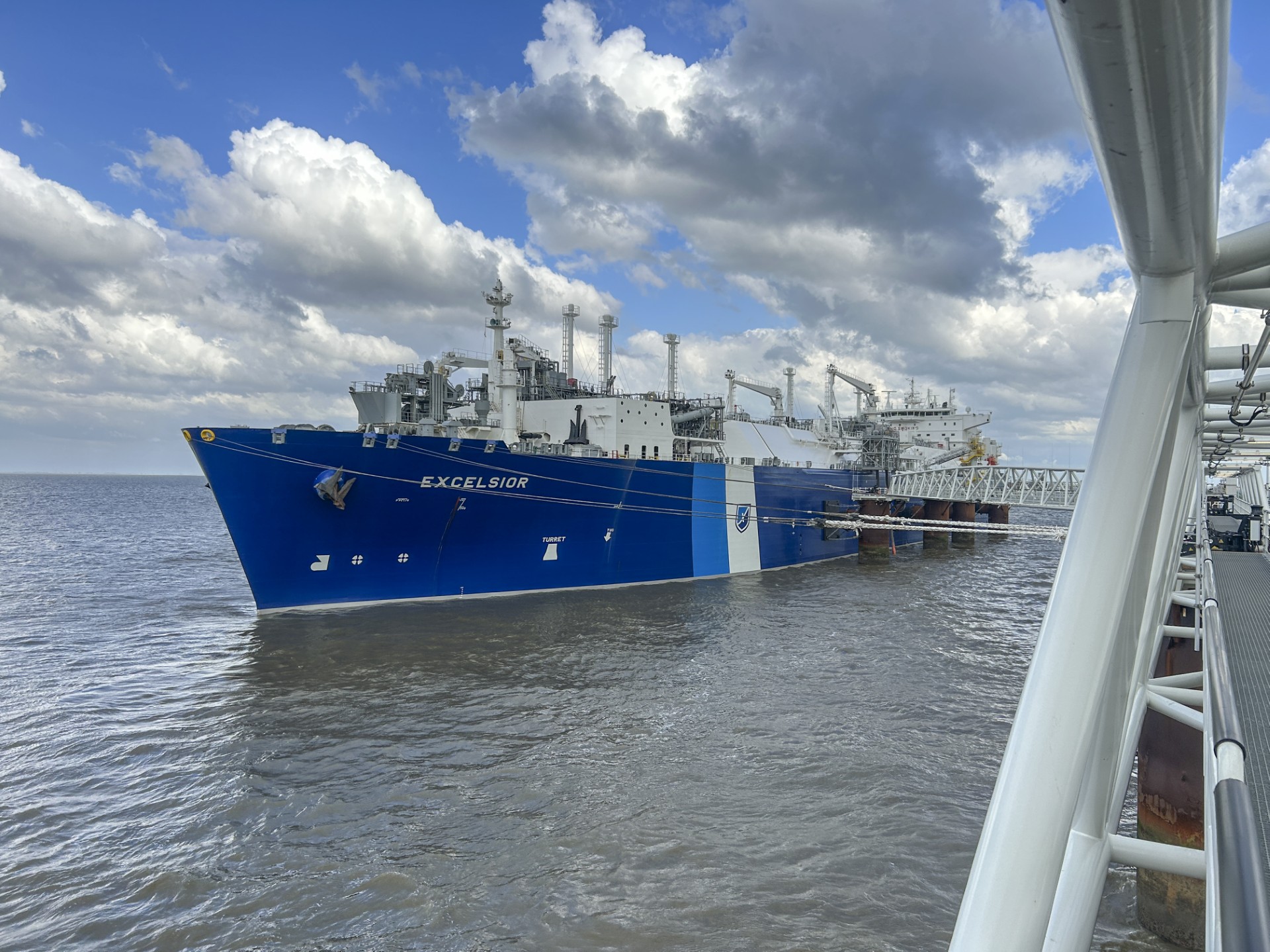This story requires a subscription
This includes a single user license.
DET stated in a press release on Thursday that this was preceded by several weeks of test operations, which included a series of functional and performance tests.
The terminal had already received its approval under hazardous incident regulations from the Oldenburg Trade Supervisory Authority (GAA) on August 1 without any objections, the state-owned firm said.
In May, the 2024-built 174,000-cbm Energy Endurance delivered the commissioning cargo to Excelerate’s 138,000-cbm FSRU Excelsior in Wilhelmshaven from Venture Global LNG’s Plaquemines LNG export plant in Louisiana.
Moreover, the chartered FSRU is located two kilometers south of the already operational Wilhelmshaven 1 terminal. It is moored at an island jetty, completed last year, and located about 1.5 km from the shore.
Excelsior delivered the first gas supplies to the grid on May 23.
DET told LNG Prime in June that it expects to launch commercial operations of the second Wilhelmshaven facility at the end of August.
“Wilhelmshaven 02 combines several technologies that are unique in Germany and Europe, from the FSRU to onshore feed-in,” Peter Röttgen, managing director of DET, said.
“On the one hand, there is ECOnnect’s flexible pipeline system for the direct transfer of natural gas to land without a pipe bridge. This has significantly reduced the impact on the seabed ecosystem. On the other hand, the ultrasonic process for cleaning the FSRU’s seawater pipeline system, which is unique in Europe, has now been put into operation,” he said.
Capacity
Besides Exclerate, which chartered the FSRU for the second Wilhelmshaven facility, DET appointed Gasfin Services for the on-site terminal operations and KN Energies for commercial management as well as the technical operations and maintenance of the terminal.
In 2025, Excelsior will feed up to 1.9 billion cubic meters of natural gas into the German gas grid.
This corresponds to the annual natural gas consumption for heating 1.5 million four-person households in multi-family homes, according to DET.
In the two subsequent years, Excelsior’s regasification and grid feed-in capacity will then reach up to 4.6 billion cubic meters each, equivalent to the annual heating energy required by up to 3.7 million four-person households, the firm noted.
In July, DET allocated all of the offered regasification slots at its FSRU-based facilities in Germany’s Wilhelmshaven in the latest marketing round.
DET successfully marketed its regasification capacities at the Wilhelmshaven 1 terminal for 2026 and at the Wilhelmshaven 2 terminal for both 2025 and 2026.

